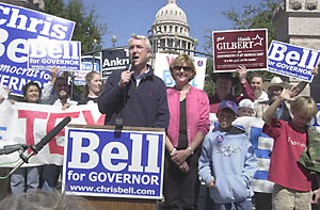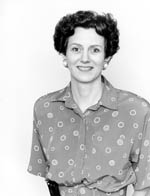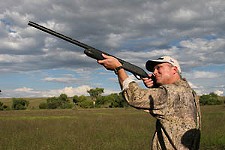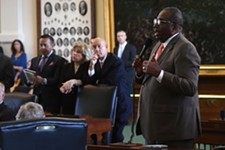The Rise of the Invisible Man
Can longshot Democrat Chris Bell ring up a miracle?
By Amy Smith, Fri., Oct. 27, 2006

When Chris Bell kicked off his bid for governor on a sleepy August day in 2005, the little-known Democrat had just $11,000 in his cash box – about enough to set up a Web site and print some push cards to hand out at campaign events.
Bell's announcement created barely a ripple within the state Democratic Party's clubby circle of trial lawyers, consultants, and other high rollers. So bleak were the prospects of a Democrat winning the governor's seat – at least in the minds of political insiders – that many of the party's donors were putting their money on Republican Comptroller Carole Keeton Strayhorn to beat fellow Republican Gov. Rick Perry. Then in January, Strayhorn's strategic switch to an independent candidacy – on the reasonable presumption that she had no hope of beating Perry in the GOP primary – created an even bigger obstacle in Bell's fundraising path. "There were times," Bell said recently, "when I was very disheartened, because money had been such a challenge."
Oh what a difference a year, a debate, and a million-dollar contribution can make for a campaign that spent the better part of the year hanging by its fingernails. As summer drew to a close, some key Democrats started rethinking the wisdom of backing Strayhorn or Kinky Friedman, who weren't exactly generating waves of enthusiasm across Texas or inching any closer to Perry in the major polls. Perry's mathematical unpopularity is undeniable, but even with his currently dismal ranking in the mid-30s, he still leads his three major opponents, even with recent polls suggesting that Bell is narrowing the gap. A SurveyUSA poll released this week shows Bell has emerged as Perry's chief rival, with the Democrat moving up to 26% against Perry's 36% standing. Strayhorn garnered 19% while Kinky Friedman dropped to 16%.
After a while, a candidate learns not to let his emotions ride the ebb and flow of poll results. "One poll came out in August that showed we were getting close," he said, recalling a Zogby/Wall Street Journal interactive survey, which placed him within 10 points of Perry. "But we couldn't push it all the way because another poll would come out showing something else. The only thing people can agree on is that Rick Perry is stuck at around 35 percent."
Heading into Labor Day, Bell's war chest gained some weight. Dallas trial lawyer Fred Baron, whose firm built its bottom line on winning asbestos-related claims, bailed out of the Strayhorn camp and poured some gravy into Bell's coffers. And he encouraged his courthouse buddies to follow suit. Harold Nix, one of the Big Five tobacco lawyers for the state, held fire until his gut told him to bet on Bell. In September, he wrote a $250,000 check. Then came the four-way televised debate on Oct. 6. Strayhorn and Friedman delivered disappointing and lackluster performances; Perry held his own and thus was generally deemed the winner. But Bell, who had the most to gain from a successful performance over his three opponents, exceeded expectations.
"There is not any question that the debate was a turning point," Bell said on a recent Friday afternoon, a week after the four-way matchup in Dallas. "These days I'm reminded more and more of what Gandhi said: First they ignore you, then they laugh at you, then they fight you, then you win." We spoke at his campaign headquarters, a spacious storefront tucked into a meandering strip center off South Lamar. The turning point carried an infusion of even bigger money. Houston trial lawyer John O'Quinn stepped up with a $1 million pledge, and the promise of either raising or contributing another $4 million.
Significantly, O'Quinn had not been an easy sell. He and Bell first met over lunch in early 2005. "He wasn't excited about it in the least but said he would think about it," Bell said. "I continued to call and would never get a response." Then came the Sept. 18 memorial service for former Gov. Ann Richards. Bell again asked O'Quinn for a meeting, and the invitation came later that day for a chat in O'Quinn's Houston office.
Bell hoped to walk out with a check or a promise. "He made it very clear that he had not been involved in politics this year, and he was sick and tired of throwing money down a rat hole." O'Quinn told Bell he knew a thing or two about talking to people and getting them to respond favorably, so he had one condition for his support – that Bell would allow O'Quinn to help the candidate prepare for the debate. If Bell's performance proved convincing, O'Quinn would open his wallet. The two men had four meetings: two with a focus-group leader, followed by a series of mock debates, including two "dress rehearsals" with the entire cast of characters. The rehearsals paid off; observers began to notice a transformation in Bell's confidence level and how he projected himself. (See "Backstage With Bell," p.36.)
"Some of it came," Bell says now, "from just loosening up a bit." Bell has spent the better part of the campaign as "the boring guy" nobody knew. He had developed a protective shell during his term in Congress, he says. "It has a tendency to make you gun-shy about not doing anything wrong or saying anything wrong and always being in the know."
Following the debate, O'Quinn and Bell headed to a Dallas restaurant – called Perry's, of all things – to celebrate with campaign staffers, members of the rehearsal cast, and Democratic House leaders Garnet Coleman of Houston and Pete Gallego of Alpine. "Everyone was on cloud nine – it was just a great night," Bell said. For a money-hungry campaign, a $1 million check and the promise of more are like manna from heaven. Still, the Bell camp had already raised $3.7 million by then, more than anybody expected. "We're not home yet," Bell insists. "Everybody knows we're not home free, but it just feels like the momentum has shifted."
"Terrorist" Calling
Then came Bell's post-debate phone call to Kinky Friedman and the brief media hubbub that followed. Bell had left a message on Friedman's answering machine, requesting a meeting. It happened that The Dallas Morning News reporters had been assigned to follow Friedman and Bell that day as part of a day-in-the-life feature on the four candidates. On the campaign trail, Bell and Friedman have enjoyed a reasonably amicable relationship. "We have overlapping friends, and, after the debate, the drift we were getting from people who are close to Kinky – I don't think they were pleased with his performance – was that this would be a good time to talk to him," Bell said. He denies news reports that had him explicitly popping the withdrawal question on Friedman's voice-mail. "I may be trying to present some bold ideas during this campaign, but I'm not so bold just to call somebody and ask them to get out of the race if, one, I'm trailing them and, two, if I don't have some level of confidence that there might be a willingness to talk."
Friedman did talk – to Robert Garrett, the Morning News reporter trailing him that day, who immediately called Gromers Jeffers, who was assigned to Bell. It's not every day that a reporter gets to churn a hard news story out of a routine day-in-the-life portrait of a candidate. Jeffers got off the phone and asked Bell about the call to Friedman. "Did you just want to order some bumper stickers?" Jeffers asked. Bell owned up to the reason, and – voila! – the Morning News had itself a story.
As Bell recounted it later, Friedman knew from others in his campaign that Bell might be calling and the inevitable reason. Instead of responding directly, he rejected the feeler out-of-hand with his characteristic sarcasm, announcing, "We don't negotiate with terrorists."
"I wanted to handle it privately," Bell said. Friedman's "the one who chose to make it public. He decided to immediately start attacking me." Instead of going on the defensive, Bell's campaign released a statement applauding Friedman for energizing a segment of the population that had previously shown little interest in state elections. "At the end of the day, we all share the same goal of getting rid of Rick Perry," Bell said.

(Bell and Friedman photos by Jana Birchum; Perry and Strayhorn photos by John Anderson)
The fact remains, though, that Democrats have little time left to get out the vote, while Perry and Strayhorn each have already bought plenty of TV time between now and Election Day, and each are sitting on stockpiles of cash sufficient to cover late-changing strategic maneuvers.
Conventional Wisdom
"With early voting already under way, Bell faces the same choice voters do – stay the course and get more of the same, or choose a new direction," said Democratic strategist Kelly Fero, who's not involved in the governor's race. Bell's challenge from here to the finish line, Fero said, is to continue to "make himself known to enough voters to be the viable alternative."
Strayhorn also faces some choices, Fero said: "Spend her war chest bloodying up Rick Perry, or bow out gracefully with a positive message." Choosing the latter would help her sons preserve their future viability in Texas Republican politics, Fero said, adding a realistic note: "But don't count on it."
Is it too late for Bell to narrow the distance to catch Perry? Even with things looking up for Bell, the odds still heavily favor Perry, says Cal Jillson, a political-science professor at Southern Methodist University. The problem for Bell, he said, is the crowded field. "All three of them [Bell, Strayhorn, and Friedman] know that if each of them takes 15 to 20 percent of the vote, they're all going to lose by 15 to 20 points. The question is whether anybody is going to fade fast or drop out," he said, suggesting that Strayhorn and Friedman would be the likely fade-outs. "That leaves Bell, whom people wrote off for most of the race." Still, Jillson believes that despite the campaign's recent momentum, the window of time is too short for Bell to close the gap. "After the debate, a lot of Democrats were saying, 'You know this guy isn't as pitiful as we thought, so maybe we ought to get behind him,'" Jillson said. "But I think it's going to be too little too late."
Jillson lays the blame squarely on Bell's party. "You just want to look at these guys who are supposed to be the brains of the Democratic Party in Texas and say, 'What were you guys thinking when you abandoned your own nominee to get behind a Republican who's now an independent? How did you think this is going to work?' So now, late in the game, they're coming back to their nominee."
Had Bell the financial means to get his message out earlier, voters would already be familiar with him. Instead, the refrain from voters for most of the year has been, "Who is Chris Bell?" Said Jillson: "He was always a name that sort of mystified people, and they didn't know enough about him to form an opinion. And when that's the case, the opinion can't be positive."
Former Lt. Gov. Ben Barnes is one of the Democratic leaders who turned to Strayhorn as his choice to oust Perry from office. Barnes remains bullish on his candidate; despite conventional wisdom that says traditionally Democratic voters will ultimately cast their ballots for the party's nominee, he believes this year could be different. "Texans are independent people. I don't think the traditional Democratic base is just going to automatically go with a Democrat in Texas." The national trend against Republicans could have some side effects for Perry, too, Barnes said. The religious-right base has become so disenchanted with the Republican Party that a lot of people might just not vote. That could hurt Perry in Texas because half of his base is religious right."
Bell's recent money gains might have come too late, Barnes says. "Politics is all built around having the money to get your message out. I have been right there where Chris Bell has been, trying to raise money for Democrats. It's really hard to get people to give money to somebody if they don't think [the candidate has] a chance of winning. It's one of the hardest sells in the word. The real story in this race," Barnes concluded, "is that, here's a governor who only has a third of the people of the state for him – and he might get re-elected. If he gets re-elected, he's going to be the most unpopular governor that this state has ever elected."
Bell believes he has enough wind in his sails to block the re-election of the unpopular governor. For example, despite Barnes' defection, most major Democratic officials support him, and recently John Sharp joined the campaign.
Bell's also noted a recent shift in the tone of press coverage of his campaign. He recalled a news story in July that erroneously reported he ranked last in total fundraising efforts. The error was corrected but not before other media outlets – including that paper's own editorial board – ran with the original story, essentially an obituary for the Democratic nominee. "It became a foregone conclusion, kind of like a self-fulfilling prophecy." As a former reporter, Bell is all too familiar with the lure of conventional wisdom, because sometimes that's all a reporter has to go on.
That's just one of the distractions that goes with the territory in a big race like this one. "It's been a learning process," he said. One of the first lessons he learned was that running for governor is nothing like running for a congressional district, or running for City Council, or running for mayor, even in a big city like Houston. "It is extraordinarily different," he said, adding that learn-as-you-go campaigns are particularly brutal when the nominee's own party declared defeat in the governor's race before Bell even announced his candidacy. "Did I know that it would be this tough? Did I recognize that people are just beaten down in the Democratic Party? Certainly not."
So, had Bell known then what he knows now, would he have jumped into a statewide race with little more than $11,000 in the bank? Bell knew that question was coming, and he paused to consider it. "I think so, because I've always felt that Rick Perry is vulnerable. That's the one thing that never changed during the course of this race." Indeed, the most remarkable change in the race occurred in the Bell campaign, and it's measured in dollars and spirit. Not bad for a virtual unknown whom the pundits had predicted would fold in the March primary. Since the debate, Bell's blog (www.chrisbell.com/blog), which had languished in cyberspace for most of the year, has been running at full throttle. He's even won over a good many Republicans. In one e-mail to Bell, Ray Hunt, a Houston police officer who had served on then Gov. Bush's law enforcement commission, wrote that he had planned to vote with his union's endorsement of Perry – until he watched the debate. "I am a life long Republican and have never voted for a Democrat in a state wide election," he wrote, "but I AM VOTING FOR YOU FOR GOVERNOR!" He concluded with an offer to assist Bell in the campaign and says it will be the first time he's ever voted for a Democratic statewide candidate.
"There've been a lot of e-mails like that," Bell said, as he scrolled his Blackberry for more Republican converts. I've always felt that Rick Perry was vulnerable, and that was my original inspiration for running." The usual prerequisite of having the party's full support didn't apply. "I wouldn't be sitting here if I thought I was going to have to have a very well-organized, strong party behind me [before entering the race]," he said, "because that was clearly not the case."
Jillson, the SMU professor, believes the Democratic Party needs to hold itself accountable for its own missteps this election season. "When the Democrats lose, as they will on Nov. 7, there will be a lot of fingers pointed at Chris Bell as a weak candidate," he said. "But I think that will be a mistake. The fingers need to be pointed at the presumed leaders and financiers of the Democratic Party in Texas. Those guys blinked early and never gave Bell a chance. And that's the big mistake that was made in this campaign – not that Bell wasn't the right guy."
We may never know if Bell was the right guy. Call him overly optimistic, or just plain crazy, but Bell has already defied colossal odds. Will he finish the race second behind Perry, as the pundits predict? The Bell camp says that this month's growth spurt in his base suggests the possibility of an odds-defying upset. And post-debate internal polls again showed him within 10 points of Perry. "We assume Perry's tracking polls are telling him the same thing," he told a reporter a few days later. "Because suddenly his TV ads are directly going after me."
Bell seems nearly as amazed as the rest of us that he's made it this far on little more than prayer, persistence, a strong campaign staff, and a loyal corps of supporters. He had a few other things going for him – the failure of the Strayhorn and Friedman campaigns to take off and, more importantly, Perry's consistent unpopularity among voters in both parties. "I don't know what's in the water, but I've sensed for some time that there is ... something." Bell's voice trailed off to ponder the mystery ingredient that seems to have miraculously buoyed his campaign in the final lap. "Think about it," he said. "If we had tanked in the debate, would we even be having this conversation?" ![]()
Got something to say on the subject? Send a letter to the editor.












